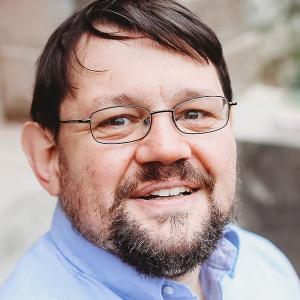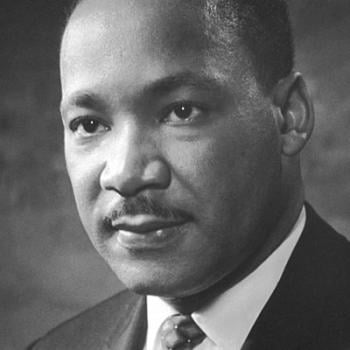 I was born in England but grew up in the mountains of East Tennessee, where my family operated a small non-denominational publishing company with a Wesleyan Holiness theological bent. I became interested in both history and literature early on, and in particular, I was fascinated by the Middle Ages. As a teenager, like so many young evangelicals, I encountered authors such as Lewis, Chesterton, Tolkien, and Flannery O’Connor, who combined deep Christian faith with profound imagination and an ability to grapple with darkness and doubt. I became aware of the shaky roots of much that I had been taught. By the time I went to Duke University to pursue graduate studies, I was already beginning to fall in love with the idea of Catholicism. I chose to focus on the Protestant Reformation, largely in order to decide whether there was a form of Protestantism that I could believe and practice with integrity. It would take me over 20 years, most of them spent as an Episcopalian, before I was willing to give up on that project.
I was born in England but grew up in the mountains of East Tennessee, where my family operated a small non-denominational publishing company with a Wesleyan Holiness theological bent. I became interested in both history and literature early on, and in particular, I was fascinated by the Middle Ages. As a teenager, like so many young evangelicals, I encountered authors such as Lewis, Chesterton, Tolkien, and Flannery O’Connor, who combined deep Christian faith with profound imagination and an ability to grapple with darkness and doubt. I became aware of the shaky roots of much that I had been taught. By the time I went to Duke University to pursue graduate studies, I was already beginning to fall in love with the idea of Catholicism. I chose to focus on the Protestant Reformation, largely in order to decide whether there was a form of Protestantism that I could believe and practice with integrity. It would take me over 20 years, most of them spent as an Episcopalian, before I was willing to give up on that project.
Meanwhile, I earned my Ph.D. with a dissertation on Martin Bucer’s interpretation of the Sermon on the Mount and spent six years as an assistant professor of Bible and religion at Huntington University in Indiana before being laid off for budgetary reasons. I currently live in the small town of Berea, Kentucky with my wife and two daughters. I am a contributing editor for Christian History Magazine. I also play the organ and keyboard for St. Clare Catholic Church in Berea, as well as St. John’s Episcopal Church in Corbin, where my wife is the priest. I returned to the classroom last fall, teaching world religions for Eastern Kentucky University, and this spring I have begun teaching online via Outschool. I act frequently with my local community theater, and last year wrote and directed a short play, “The Wall.” I spent five years homesteading on an eight-acre property before moving into town last year, and I continue to be very interested in sustainable agriculture.
My blog title, “Light in the West,” comes from Tolkien’s Silmarillion, in which the first Men to come over the mountains and encounter the Elves are tempted by the demonic Morgoth in disguise. Morgoth, pretending to be one of their leaders, tells them: “The Sea has no Shore. There is no Light in the West. We have followed a fool-fire of the Elves to the end of the world.” My spiritual journey, with all its twists and turns, has been driven by the longing for that “light in the West” (or, in Lewis’ formulation, the “utter East”) of which both Tolkien and Lewis wrote so movingly. For Christians, and particularly for Catholics, the most haunting doubt of our time is the fear that it will all turn out to be a “fool-fire of the Elves”–that the Church that holds up to us a mirror of that ineffable Light is simply an institution driven by the lust for power and domination, and there is no transcendent reality behind it. As a church historian, I have grappled with this for my entire adult life. I still have no definitive answers, only a conviction that the Light we see reflected in the beliefs and practices of historic Christianity is worth following and that the doubts and ambiguities of that quest are worth embracing.



